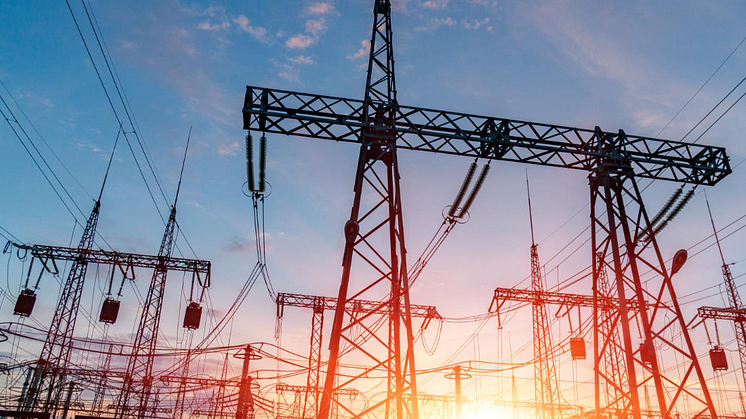
Press release -
Significant potential for integrated regional power grid and electricity market development for ASEAN: PwC
Achieving optimal electrification and supercharging ASEAN’s energy trade requires concerted effort in facilitating infrastructure investment and development across borders
For immediate release - Singapore, 19 October 2022 – As ASEAN faces depleting energy reserves catalysed by climate change while anticipating exponential growth in its electricity demand, an integrated regional renewable power grid and electricity market poses solutions to this energy challenge. PwC Singapore’s latest energy transition paper, Regional electricity trade in ASEAN: The road ahead to an integrated and greener electricity future, explores the opportunities and challenges of enabling optimal electrification in ASEAN’s cross-border electricity trade and eventually developing a regional electricity market.
The paper highlights that countries across ASEAN have unequal renewable energy resource endowments such as hydro, solar and wind energy. An integrated ASEAN power grid is therefore expected to enable the pooling of various renewable sources from countries with endowment advantages and supply renewable power to countries with significantly less resources. For example, Laos, with significantly more power generation capacity in hydroelectricity, which outweighs its domestic consumption needs, currently exports up to 78% of its generated power according to PwC’s analysis. As a result, a surplus of their power generation has been developed to provide stable, cleaner baseload electricity to its neighbouring countries.
An integrated power grid can introduce to ASEAN more diversified and stable power sources instead of relying on a single or few energy sources. Hence, a plant failure would be less likely to significantly affect power supply across the region and the reserve margins can be minimised, resulting in overall resource and cost optimisation.
For an economy like Singapore - which has pledged to stabilise emissions at 65 MtCO2e around 2030 and achieve 36% reduction in emissions intensity from 2005 levels according to the National Environment Agency - the development of an integrated regional electricity market can accelerate industry-wide energy transition at scale.
Cross-border energy transmission is not new to ASEAN, with at least 27 cross-border transition links currently existing between ASEAN countries. However, without an integrated electricity market, each ASEAN country’s electricity market is currently managed and regulated individually with limited interconnectivity between the various national grids which were built predominantly to meet domestic market demand.
Unlocking ASEAN’s integrated electricity future will require significant investment into the region’s electricity infrastructure development. This includes grid strengthening, and deployment of battery electric storage systems, control systems and smart grids to ensure secure and reliable electricity supply. Success will require a combination of:
- Increased technical harmonisation between diverse power systems - ASEAN’s power systems are diverse in their standards, specifications, and protocols for electricity transmission. Increased technical harmonisation and operational procedures between multiple power systems is required to enable more effective cross-border energy trade.
- Development of long-term policies and market structure - The electricity policies in the region will need to incorporate a long-term vision of regional collaboration.
- Robust cross-government collaboration and support - The development of a consistent intergovernmental collaboration framework for infrastructure planning and development will make cross-border grid expansions more seamless.
- Prioritisation of environmental and social impact - Power generation and transmission projects often open up environment and social-related risks (e.g. water and air pollution, impact on local population livelihoods, etc) which needs to be addressed upfront.
- Financial feasibility for developers and investors - With a clear cross-border electricity trading framework, developers will be able to better plan for local and cross-border transmission upgrades, and investors will be able to deploy their capital more efficiently across the region.
Jennifer Tay, Infrastructure Leader, PwC Singapore said: “A regional renewable power grid has the potential to help ASEAN transition towards a sustainable future powered by renewable energy and vitalise its electricity trade market. It is important for both public and private sectors participating in the ASEAN economy to consider the value of sustainable infrastructure development from all environmental, social and economic growth aspects. After all, infrastructures are built for generations to come, and need to serve the needs of evolving economies."
------------------ENDS-----------------------
Related links
Topics
Categories
About PwC
At PwC, our purpose is to build trust in society and solve important problems - this is at the core of everything we do from the value we provide to our clients and society to the decisions we make as a firm.
Our services started with audit and assurance over a century ago. As times change and the issues faced by businesses and individuals evolved, we have developed specialised capabilities in tax, advisory and consulting to help you address emerging new challenges across focus areas like ESG, sustainability and climate change, digital transformation, cyber security and privacy, data, mergers and acquisitions, and more.
In Singapore, we have more than 3,500 partners and staff to help resolve complex issues and identify opportunities for public, private and government organisations to progress. As part of the PwC network with nearly 328,000 people in 152 countries, we are among the leading professional services networks in the world focusing on helping organisations and individuals create the value they are looking for.
© 2022 PwC. All rights reserved

